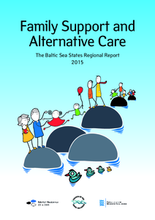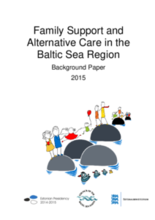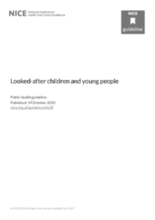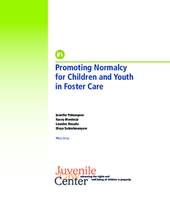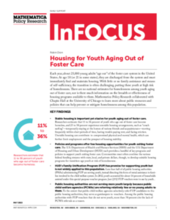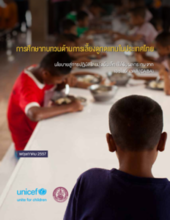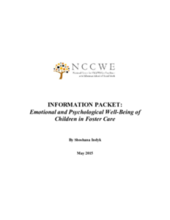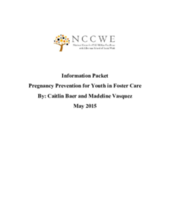Displaying 1771 - 1780 of 2221
This report was developed as part of a mapping study aimed at analysing the situation of alternative care and family support in the Baltic Sea Region, assessing the achievements since the 2005 Ministerial Forum and identifying relevant opportunities and challenges for the future.
This background paper was developed as part of a regional study which gathered relevant data and information on family support and alternative care in the eleven Member States of the Council of the Baltic Sea States (CBSS).
This guideline covers how organisations, professionals and carers can work together to deliver high quality care, stable placements and nurturing relationships for looked-after children and young people in England.
This paper, from the Juvenile Law Center in the United States, provides an overview of the Preventing Sex Trafficking and Strengthening Families Act of 2014 as it relates to promoting well-being and normalcy for youth in foster care.
This document provides a brief overview of the findings of a study on public resources and policies that can help prevent or mitigate homelessness among young adults who have aged out of foster care in the US.
The purpose of this research was to capture more accurate and detailed information regarding children in various forms of alternative care in Thailand.
This information packet presents an overview of facts, statistics, policies, legislation, best practices, model programs, and additional resources related to the US child welfare system and the emotional and psychological well-being of children involved in that system.
This information packet from the National Center for Child Welfare Excellence presents demographic data on pregnant youth in foster care and best practice tips for pregnancy prevention among youth in foster care in the US, as well as an overview of a model pregnancy prevention program and a list of additional resources.
This chapter explores the idea of belonging through the lens of attachment theory.
The ideas and questions raised in this chapter derive from the referrals of children in care or adopted whom the author has seen for psychotherapy.

